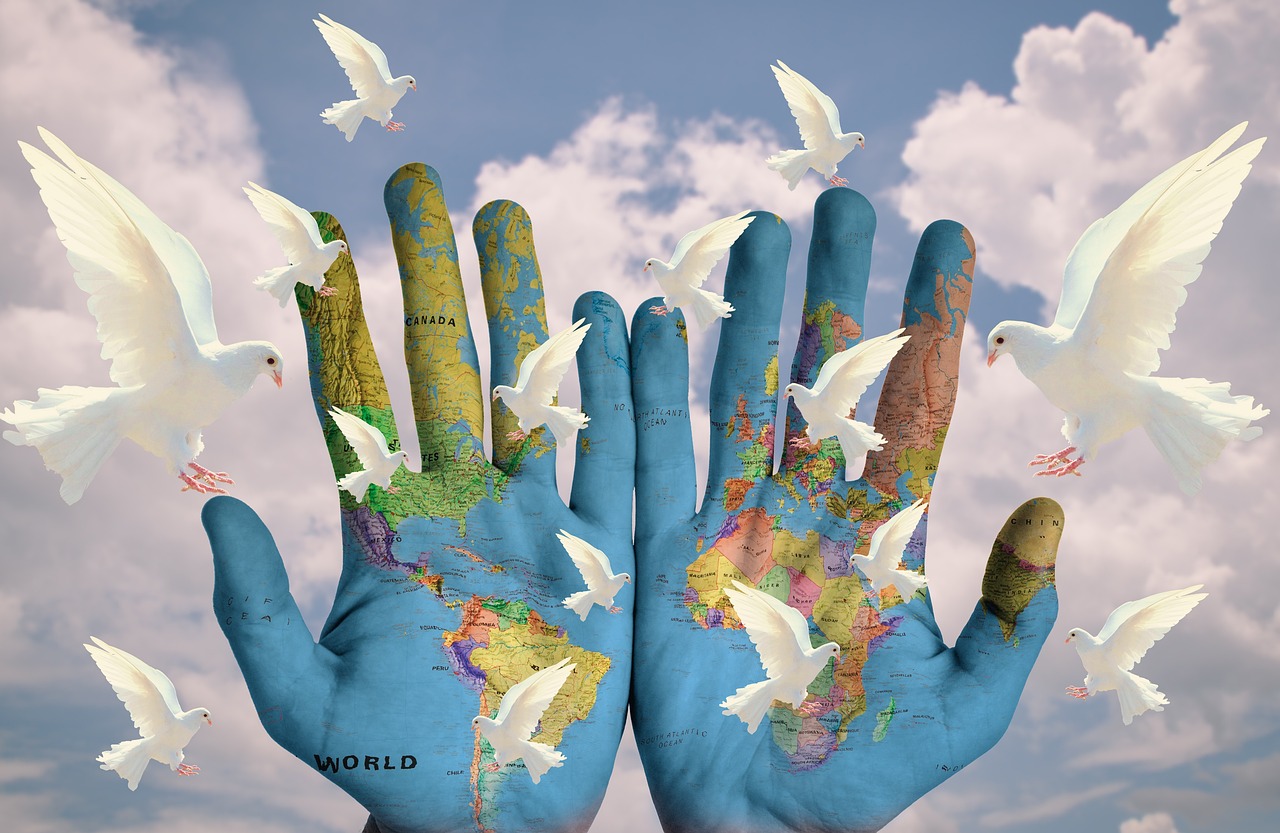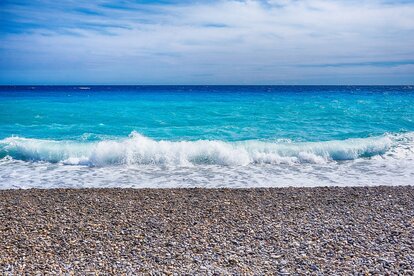International dialogue
Dialogue, the most radically human instrument

The world is infected by wars. Syria, Ukraine, Ethiopia, Yemen.... Thousands of conflicts are dotting the Earth at the beginning of the third millennium. In this context, the UN Secretary General, António Guterres, recalled that "the world needs peace more than ever" and urged that the search for peace should guide the actions of all people. Guterres is not wrong in his diagnosis. Nor is he wrong about the causes. And, much less so (despite the fact that it is little understood, and badly understood), in the only possible solution: dialogue.
It is paradoxical that, just today, when the planet is suffering at least sixty armed conflicts (to which must be added the 'other wars' and their effects: hunger, forced migration, slavery, human trafficking, the globalisation of indifference), the United Nations has decreed 2023 as the "International Year of Dialogue as a Guarantee of Peace".
A toast to the sun from the highest international body, or a unique, and perhaps last, opportunity to reclaim what makes us authentically human?
Because speaking and listening are the main tools of any civilisation, which is generated around a shared language. We know this well in the Mediterranean, the cradle of cultures around the same sea, a common history, shared dreams. Because the Mediterranean, far from being just an immense tomb for those who do not see their dreams come true, is a magnificent opportunity to link common objectives. It is not for nothing that it is called 'Mare Nostrum'. And the first person plural, 'We', is the best pronoun to invoke dialogue.
A dialogue on several shores, from Algeciras to Istanbul, as the Spanish singer-songwriter Joan Manuel Serrat sang, in the Euro-Mediterranean area, with the European Union as the guarantor of democracy and freedoms, but also with initiatives such as that of the Mediterranean Third Countries. An interesting area of work is the increasingly intense cooperation proposed by the '5-5 Dialogue', promoted by Spain, Portugal, France, Italy and Malta from the EU, and by Morocco, Algeria, Libya, Mauritania, Mauritania and Tunisia from the Maghreb. North and South of the Mediterranean, Europe and Africa, Christian and Islamic culture united around the development of tools for the fight against terrorism and the illegal trafficking of people; to promote agreements on fishing, trade, tourism and common security; and to act as a 'funnel' to bring understanding and real cooperation to the eastern shore of the Mediterranean, where the Arab-Israeli conflict, the difficult situation in Lebanon and the fragile Cypriot borders pose an ever-present threat to peace and security in the region.

"There will be no peace between nations without peace between religions. There will be no peace between religions without dialogue between religions", said the Swiss theologian Hans Küng. Two other men of religion, Pope Francis and the Imam of Al Azhar, Mohammad Ahmed Attayeb, understood a few years ago better than anyone else the urgency of dialogue between different religions, which is why they signed, in February 2019, the document of Human Fraternity. A year later, Bergoglio published 'Fratelli Tutti', the first global encyclical in history, dedicated not only to believers in one religion, but to the entire human race. To that 'We' that makes human communication possible. Because 'Communication', 'Communion' and 'Community' come from the same root, and without communication there is no possibility of creating living, plural communities that advance, defending that diversity, in pursuit of a common path for all Humanity. In this strange world of piecemeal wars, it is essential to seek a real two-way dialogue (speaking and listening) that avoids the polarisations that are so terribly marking the future of the 21st century, the 'time of lies', as some philosophers of the new breed have defined it.
In the face of post-truth, falsified narratives, the risks of Artificial Intelligence or Lawfare, the Mediterranean is an ideal space to promote, as it has done so many times throughout its history (Egypt, Israel, Greece, Rome, Christianity, the pilgrimage to Compostela, the European project... all bear witness to this), a shared narrative of hopes, dreams and work in common. Today, despite wars, the use of hunger and inequality as weapons, maximalist and radically intransigent positions towards those who think differently, the great Mediterranean dream, the great global challenge, lies in adding up, in integrating differences into a common, constructive narrative that leaves no one behind. The experience of the coronavirus - a global pandemic that paralysed the world for months - or the challenge of climate change, should lead us to abandon our confinement and admit, realistically but also with hope, that no one can save themselves alone, and that only cooperation will allow us to build a fairer, more dignified and fraternal world for all the inhabitants of the planet. In Mare Nostrum, where civilisations arose that changed and widened the world, we have the opportunity to begin again. And to do so with the most powerful, the most humane weapon: dialogue. From shore to shore.
